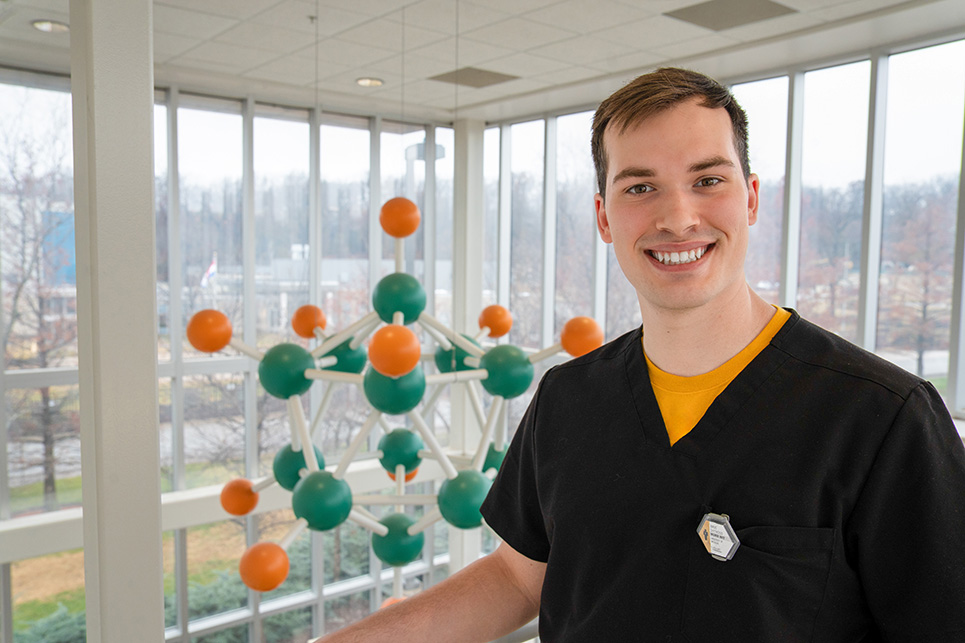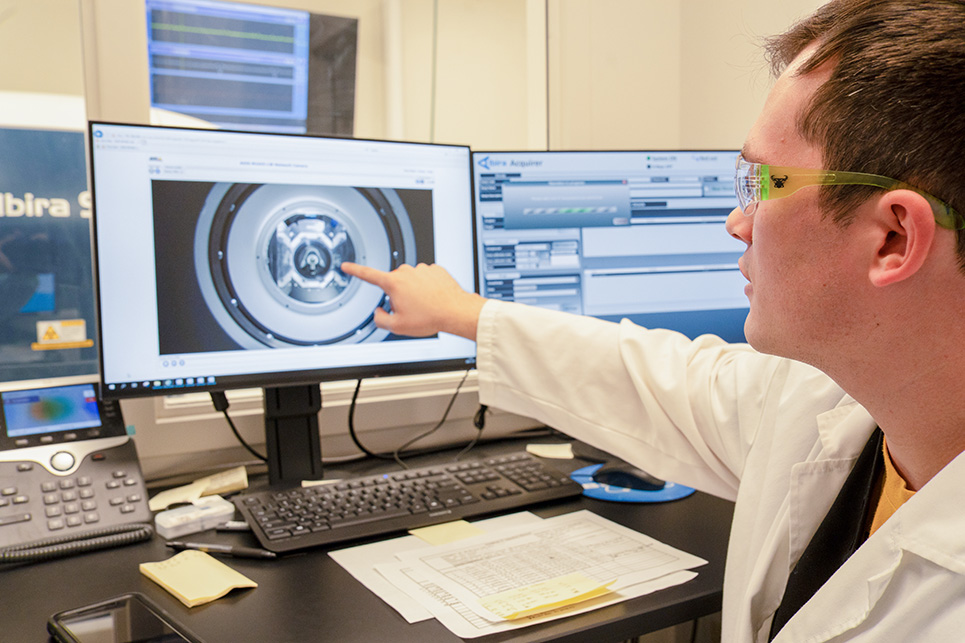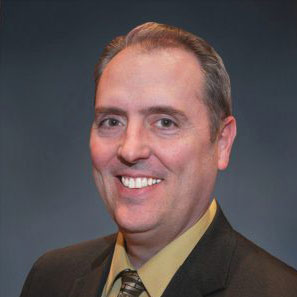March 18, 2024
Story by Ryan Gauthier

Broc Chitwood will never forget the utter confusion of lying beneath a pile of football players and wondering why he couldn’t tell his left from his right shoulder.
Drawing inspiration from Pro Football Hall of Famer Troy Polamalu, Chitwood dove over the line of scrimmage during a crucial defensive stop and sacked the opposing team’s quarterback. While the St. James High School varsity football team was thrilled with his clutch play, Chitwood said the quarterback and several other players fell on top of him and ended up tearing both of his rotator cuffs.
“I knew something was wrong immediately, but I couldn’t tell exactly what had happened,” he said. “I went back in the next series and tried to stop a running back, and it looked like I got assassinated on the field. He just barely touched my shoulder, and I collapsed when it popped out again.”
While that play ended Chitwood’s football career, it also introduced him to potential career paths. During a visit with Dr. Patrick Smith at Columbia Orthopaedic Group, Chitwood was fascinated by the CT scans of his injured shoulders.
“He went through all the images with me,” Chitwood said. “Even though it’s not cool that it happened to me, the injury definitely inspired me to pursue a career in health care and [helped me to] recognize the importance of imaging.”
Those seeds were planted and eventually led Chitwood to study Health Sciences at the University of Missouri. Another fateful interaction came when Chitwood met Marvin Feldman, who at the time was an assistant clinical professor with Mizzou’s Nuclear Medicine program. Feldman was a guest lecturer in Chitwood’s Health Science 1000 class, and he spoke about careers in nuclear medicine. Chitwood was immediately hooked.
“He talked about the variety and growth potential of a career in nuclear medicine,” Chitwood said. “A bunch of people in that same class ended up going into nuclear medicine largely because of his presentation.”
Breaking new ground
After graduating with his Bachelor of Health Science in Clinical and Diagnostic Sciences — with an emphasis in Nuclear Medicine — in spring 2023, Chitwood began planning for his future. In hopes of securing research experience before eventually applying to medical school, he began a full-time position with Mizzou’s Molecular Imaging and Theranostics Center (MITC).
As an imaging technologist at the MITC, Chitwood spends his days collaborating with researchers on the leading edge of cancer care. He leverages his nuclear medicine expertise to help with imaging studies focused on various forms of cancer.
Mice carrying certain types of cancer cells are given medications designed to target those cells that contain radioisotopes produced at the University of Missouri Research Reactor. Chitwood then performs imaging on those mice to see whether the medications are working as intended. He said there are far more failures than successes, but he’s also experienced the excitement when a drug manages to target a tumor as intended.
“This is how new drugs come to the forefront and start being tested in clinical trials,” Chitwood said. “I don’t know anybody else from my class who has had this opportunity. We might hear about the groundbreaking drugs being invented, but not everyone gets to see this side of how they come to be.”
The best of both worlds

Chitwood said his time in the Mizzou College of Health Sciences prepared him for his current position by providing him with endless opportunities for hands-on learning. By being able to work in clinics and interact with practitioners, he said he felt equipped for life after his undergraduate years.
Jeff Galen, director of Mizzou’s Nuclear Medicine program, said Chitwood is a terrific example of the meaningful experiences students can have as part of their education — thanks in large part to the program’s myriad training partnerships.
“Broc, like many of our graduates, has had opportunities to pursue some really exciting new technologies in our field,” Galen said. “Here you have a new technologist who is very early in his career, yet the work he is doing in the development of new cancer treatments is amazing.”
As for his future plans, Chitwood is preparing to apply to medical school and then see what opportunities are available. Further down the road, he would like to use his expertise in nuclear medicine while also working more closely with patients.
“I’d like to get into interventional radiology because it would involve imaging as well as being involved in surgeries,” he said. “That would be my ultimate goal.”
For now, Chitwood is happy to be working in a growing field and gaining invaluable experience on the cutting edge of health care. Although he’s not filled with warm fuzzies when he thinks back to lying on the turf with a pair of torn rotator cuffs, Chitwood is still grateful for the way it opened his eyes to a rewarding career.
“That terrible injury really is what started me on this path,” he said. “I don’t know that I would be where I am today if not for that experience.”
